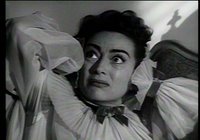 The Siren has a theory that as families age and move away from one another, their fights begin to center around who gets custody of the memories. Whose version of Thanksgiving 1988 will prevail, yours or mine?
The Siren has a theory that as families age and move away from one another, their fights begin to center around who gets custody of the memories. Whose version of Thanksgiving 1988 will prevail, yours or mine?My sister, for example, has complained for years that I always got the best Barbie furniture. And she remembers me rubbing that in quite a bit. Whereas I remember her taking my favorite Barbie (forgotten the name, but she had a handle in back so you could manipulate her torso like an hourglass-shaped Charlie McCarthy), carefully decapitating her and sticking the head in the rotisserie section of my Barbie's Magic Revolving Kitchenette. My sister and I get along quite well these days, but there are certain places where our recollections will always diverge.
Ever since 1978, there has been no question as to who got custody of the Joan Crawford memories. It is daughter Christina. She got some help from Joan herself, who took mostly lousy roles in her sunset years and plunged over the cliff of self-parody. But it is Mommie Dearest that dominates all discussion of the actress. Try having a serious film discussion about Crawford without having the words "wire hangers" crop up. On second thought, don't bother. It isn't going to happen, even if you are lucky enough to be lunching with the ladies and gentlemen at the Joan Crawford Encyclopedia or with critic Lawrence Quirk.
So let's get Faye Dunaway, hacking at the rosebushes and being mad at the dirt out of the way. Joan had four adopted children. The two oldest, Christina and Christopher, stand by their stories of life with an abusive drunk. The younger twins, Cathy and Cynthia, have always said they remember a firm but loving mother, never saw Crawford drunk and by the way, Christina is a liar. It's difficult to read about some of Christina's behavior (including an account here by Myrna Loy, scroll down) and remember that she was cut out of Crawford's will, without thinking there was some vengeful exaggeration going on. It is also hard to read accounts of Crawford with her children, including such diverse witnesses as Liz Smith and Betty Hutton, without thinking that the actress wasn't the sort you'd want as your own mother.
I guess here is where I come up with some sort of fatuity like "the truth must lie somewhere in the middle," but really, says who? I know for a fact I saw that Barbie head. Long ago, when I started seriously reading about Golden Age Hollywood, I decided to be pleasantly surprised when an actor I admire turns out to be a nice person, rather than righteously indignant when he turns out to be a schmuck. This saves me a great deal of unsightly brow-furrowing.
Once, when the Siren was on a chat board, someone asked about people who were genuinely ugly, but still movie stars. One contributor offered up Crawford's name. The Siren dashed over to Google Image counterexamples in such a frenzy that she almost disconnected her keyboard.
 That one aspect of the Mommie Dearest image really is a pity. Christina was adopted in 1940, so her account of her mother is strictly late-period Joan, of the laquered eyebrows, layered lipstick and those "goddamned shoulder pads," as Mildred Pierce director Michael Curtiz called them. Despite some dazzling bright spots--the Siren thinks anyone who loves movies must get pleasure out of Mildred Pierce, Sudden Fear and Johnny Guitar--Crawford's acting did not improve with age. For the Siren's taste, Crawford was at her best far earlier in her career, when her signature roles all had her struggling to support herself (until the last reel, which inevitably had her in mink).
That one aspect of the Mommie Dearest image really is a pity. Christina was adopted in 1940, so her account of her mother is strictly late-period Joan, of the laquered eyebrows, layered lipstick and those "goddamned shoulder pads," as Mildred Pierce director Michael Curtiz called them. Despite some dazzling bright spots--the Siren thinks anyone who loves movies must get pleasure out of Mildred Pierce, Sudden Fear and Johnny Guitar--Crawford's acting did not improve with age. For the Siren's taste, Crawford was at her best far earlier in her career, when her signature roles all had her struggling to support herself (until the last reel, which inevitably had her in mink).Mind you, at no point in her career could one call her a subtle actress. According to David Shipman, F. Scott Fitzgerald complained that you couldn't give Crawford a script direction like "telling a lie," because you'd then get an impression of Benedict Arnold betraying West Point to the British. That doesn't mean, though, that Crawford couldn't enchant. In celebration of Joan's 101st birthday, which was March 23, the Siren's part two will discuss two of Crawford's best: as Flaemmchen in Grand Hotel, and Crystal Allen in The Women.
(The Siren urges anyone with even a peripheral interest in things Joan to scamper over to The Joan Crawford Encyclopedia, a massive labor of love and surely one of the most complete and fascinating fan sites on the Web. There is also a very fine tribute article by Gary Johnson here.)
Không có nhận xét nào:
Đăng nhận xét